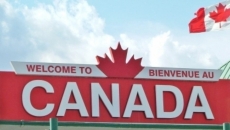The federal government needs to stop "quibbling" with provinces and territories about health care and sit down with them to work out how to restore Canada's "crumbling" system, British Columbia Premier John Horgan said Tuesday.
It's been eight months since Prime Minister Justin Trudeau promised to meet with the premiers to address their request for stable, long-term health-care funding, and that meeting is overdue, Horgan told a news conference at the start of the final day of the premiers' Council of the Federation gathering in Victoria.
"That's why we're reinforcing today unanimity in our desire to have the federal government call a meeting .... We can sit down and solve these problems for Canadians, not for provinces and the federal government, but for Canadians," said Horgan, who chairs the council.
People need more doctors, nurses and care aides. The health care system across 🇨🇦 is near crisis.
— John Horgan (@jjhorgan) July 12, 2022
What began as a 50-50 split has dwindled to Ottawa covering just 22%.
We need a fair deal and a renewed partnership to deliver the care people need - now. pic.twitter.com/Visui9YZgm
Earlier Tuesday, Health Minister Jean-Yves Duclos said the federal government has been working with the provinces and it recognizes that health systems are in crisis.
"Many workers have left the profession ... because of the physical and mental health toll that COVID-19 brought to them and their families," he said in an interview.
"Provinces and territories legitimately feel that crisis because they are most directly impacted by the health-care crisis that we're all seeing across the country."
Duclos said he's been working steadily with his provincial and territorial counterparts, while transferring billions of dollars to shore up the system.
"We have stepped up together in terms of policy but also in terms of funding," he said, adding Ottawa has already agreed to do more over the long term.
Duclos did not offer a timeline for those negotiations. Previously, Trudeau said the talks would happen when the pandemic is over.
The premiers have called on the federal government to boost its share of health-care funding to 35 per cent from what they have said amounts to 22 per cent.
Horgan has said stable, long-term funding that's closer to an equal split between Ottawa and the provinces is necessary to reimagine Canada's health system.
The B.C. premier addressed remarks in a CBC interview earlier this week by Intergovernmental Affairs Minister Dominic LeBlanc, who said Ottawa would not increase its health-care funding so the provinces can then reduce their own spending.
Horgan said it's a "cop-out" and a "mechanism to divert attention" for Ottawa to suggest its funding depends on what the provinces do with the money.
"It all goes into a pot and it all comes out for the services that Canadians need. That's our jurisdiction, that's what we are required to do and that's what we do happily," he said.
The premiers and their governments are "accountable every day" for their expenditures in their legislatures and budget processes, Horgan added.
"We work on trying to balance the needs for education, for transportation, for health-care services and a range of other programs that provinces deliver," he said.
"We're not saying we don't want to be accountable for the expenditures we make, we’re saying to Ottawa, the system isn't working.”
LeBlanc has also said the premiers' assertion that the federal government pays 22 per cent of Canada's health-care costs is "fake," because it doesn't take into account tax points transferred from Ottawa to the provinces last year.
Currently, federal contributions to provincial health systems grow in line with a three-year moving average of nominal gross domestic product.
Based on that formula, the health transfer payment to provinces increased by 4.8 per cent in the most recent federation budget, amounting to an extra $12 billion projected over the next five years compared to pre-pandemic estimates.
The Alberta government has announced it's funding a study to examine the potential for provinces and territories to recognize each other's trade and labour regulations.
"Currently, Canada has a patchwork of thousands of different provincial regulations that hinder businesses and add costs for consumers," Premier Jason Kenney said in a news release issued Tuesday.
Efforts to harmonize those rules at the joint provincial, territorial and federal regulatory reconciliation and co-operation table are moving very slowly, the statement said.
The study from the Macdonald-Laurier Institute is due to the Alberta government by September.
Affordability challenges and economic recovery are among the other topics on the table during the Council of the Federation's two-day summer meeting.
On Monday, Horgan said the premiers were sharing ideas for combating rising inflation and living costs, and they hope to see federal support in that area as well.
While some of the causes are global, including the pandemic and Russia's invasion of Ukraine, the impacts are local and need sustained intervention, he said.
"These are seismic issues that are rocking the international economy and we're not immune to that. But collectively, working together to find best practices — what can we do in our respective jurisdictions — and most importantly how can we collaborate with the federal government on meeting these challenges."
— With files from Laura Osman in Ottawa
This report by The Canadian Press was first published July 12, 2022.






